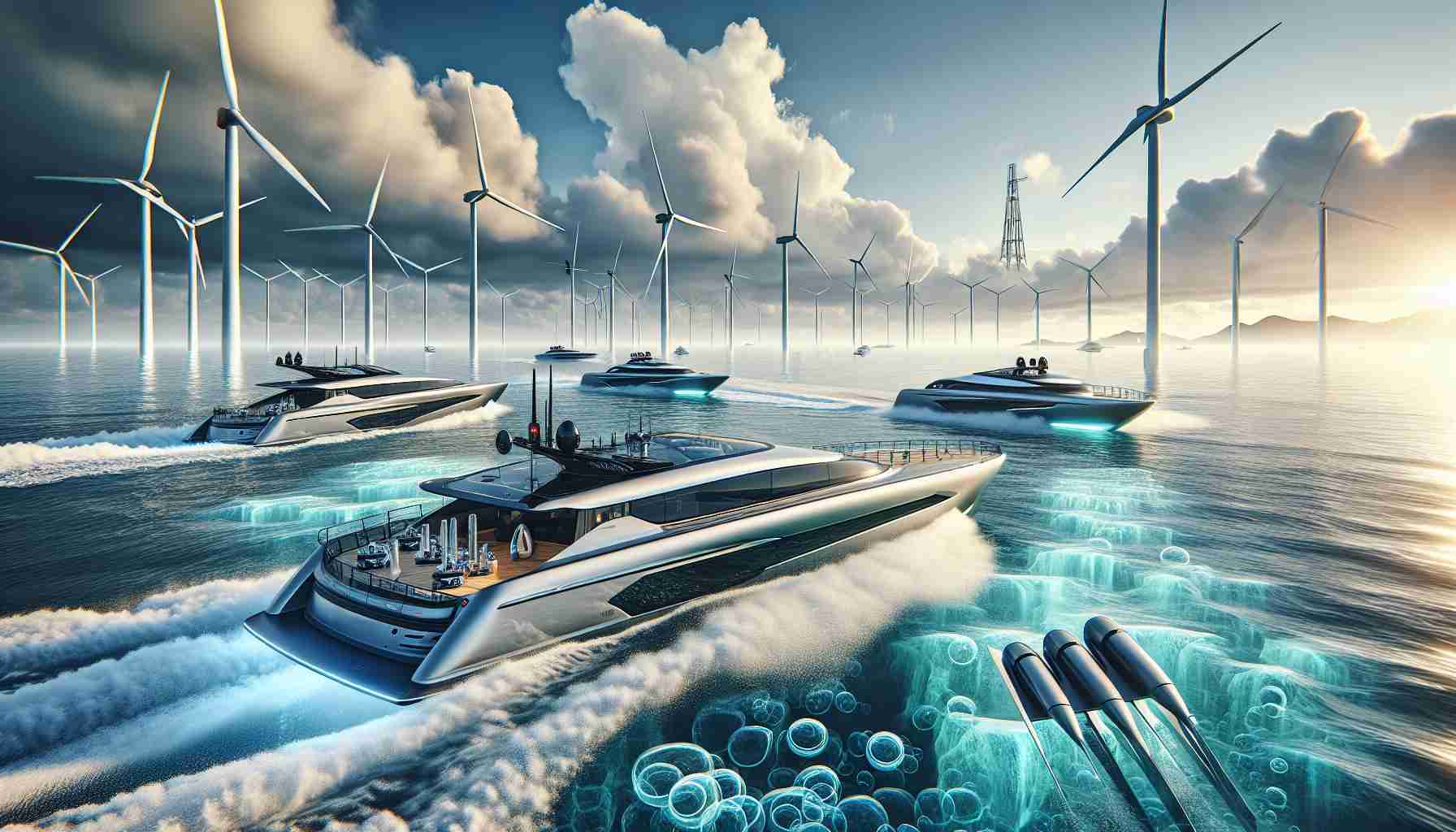Exploring the Benefits and Challenges of Hydrogen-Powered Boats
Hydrogen is emerging as a groundbreaking alternative fuel source for marine vessels. Its appeal lies in its status as a clean fuel, releasing only water as a byproduct when used. Furthermore, hydrogen engines demonstrate remarkable efficiency compared to traditional combustion engines, utilizing a significantly larger portion of energy generated. Unlike conventional petroleum engines, which squander about 80% of their energy through heat, hydrogen fuel cells convert energy into electricity that powers electric motors far more effectively.
However, the transition to hydrogen isn’t without its hurdles. A notable challenge has been the storage of hydrogen on boats, which generally requires high-pressure tanks and specialized conditions. This necessitates significant space and careful management aboard, particularly in smaller vessels where space is at a premium.
Recent advancements are paving the way for more practical hydrogen solutions. Innovative technologies, such as on-demand hydrogen generation, are changing the game by eliminating the need for cumbersome storage systems. These developments promise to make hydrogen fuel more accessible and versatile, potentially revolutionizing how boats operate in the future. As the marine industry seeks sustainable practices, the possibilities for hydrogen-powered vessels continue to expand, offering a glimpse into a cleaner, greener maritime future.
The Broader Impact of Hydrogen-Powered Boats
The rise of hydrogen-powered boats marks a pivotal shift not only in maritime technology but also in the broader context of societal and environmental paradigms. As the world grapples with climate change, the push for cleaner fuel sources has never been more critical. The adoption of hydrogen fuel in marine vessels could significantly lower greenhouse gas emissions from the maritime sector, which is responsible for approximately 2-3% of global CO2 emissions. In this light, hydrogen fuel cells serve as a potential lifeline to meet international climate targets established in agreements like the Paris Accord.
Culturally, the acceptance of hydrogen-powered technology could reshape public perception of sustainability in transportation. By demonstrating that even traditionally fossil-fuel reliant sectors can innovate towards greener solutions, these advancements might foster greater societal engagement in sustainable practices, influencing everything from business travel to recreational boating.
As for the global economy, investing in hydrogen infrastructure could stimulate jobs in tech development and green energy sectors. Furthermore, as the demand for cleaner marine transport increases, economies that proactively embrace hydrogen technology could gain a competitive edge, positioning themselves as leaders in new markets.
Looking to the future, the marine industry might witness a profound transformation marked by decentralized hydrogen production, advanced storage solutions, and cost-effective fuel systems. These trends signal a promising horizon for sustainable maritime endeavors—an evolution that aligns ecological integrity with economic growth.
Hydrogen-Powered Boats: Revolutionizing the Marine Industry
The Rise of Hydrogen as an Alternative Fuel
Hydrogen has become a compelling alternative fuel source for marine vessels, primarily due to its clean energy profile. Unlike traditional fossil fuels that emit harmful pollutants, hydrogen-powered boats only release water vapor as a byproduct of combustion. This characteristic makes them particularly appealing in an era increasingly focused on reducing environmental impact.
One of the significant advantages of hydrogen fuel cells is their efficiency. Hydrogen engines can utilize a larger portion of the energy produced—up to 60%, compared to the mere 20% efficiency of conventional combustion engines. This efficiency not only translates into better performance but also offers the potential for longer operational ranges and reduced fuel costs over time.
Advantages of Hydrogen-Powered Boats
Pros:
1. Environmental Benefits: Zero emissions make hydrogen-powered boats an eco-friendly alternative, significantly reducing the marine industry’s carbon footprint.
2. Operational Efficiency: High energy conversion rates allow vessels to operate more effectively, potentially leading to lower operational costs.
3. Innovative Technology: Advances in hydrogen generation and fuel cell technology are making it easier to integrate hydrogen systems into marine vehicles.
4. Regulatory Compliance: As regulations around emissions tighten, hydrogen-powered boats offer a proactive solution for compliance with environmental standards.
Challenges and Limitations
Cons:
1. Storage Issues: Hydrogen requires high-pressure tanks, which can be challenging aboard smaller vessels where space is limited. This often necessitates complex engineering solutions to fit hydrogen systems efficiently.
2. Infrastructure Needs: The current lack of refueling infrastructure for hydrogen can hinder the widespread adoption of hydrogen-powered boats, making long-distance travel problematic.
3. Cost of Technology: Although hydrogen technology is advancing, initial investments can be high compared to traditional diesel engines, which may deter some operators.
Innovations and Future Trends
The marine industry is undergoing significant transformation as it embraces sustainability. Recent innovations, such as on-demand hydrogen generation systems, promise to replace bulky storage tanks with more compact and efficient solutions. These advancements not only mitigate storage issues but also enhance safety and usability.
Moreover, industry players are looking at hybrid systems that combine hydrogen technology with other renewable energy sources, like solar and wind. This multi-source approach could optimize energy usage while further reducing emissions.
Market Insights and Predictions
The market for hydrogen-powered vessels is expected to grow significantly, driven by increasing environmental regulations and a shift toward greener technologies. Analysts predict that the global hydrogen market could reach $200 billion by 2030, with marine applications representing a substantial segment of this growth.
Use Cases and Practical Applications
Hydrogen-powered boats have a wide range of potential applications, including:
– Passenger Ferries: Eco-friendly alternatives for urban waterways.
– Cargo Vessels: Reducing emissions in freight transport.
– Tourist Boats: Providing a sustainable option for sightseeing tours.
As technology improves, hydrogen fuel cells are likely to find their place not just in niche applications but also in larger commercial vessels, making waves in the maritime industry.
Conclusion
Hydrogen-powered boats represent a promising avenue for sustainable marine transportation. While challenges remain, the advantages of hydrogen fuel and ongoing innovations are positioned to reshape the future of the maritime industry. As the world shifts toward cleaner energy solutions, investing in hydrogen technology may not only be environmentally responsible but also economically advantageous for marine operators.
For more information on sustainable marine energy, visit Maritime Innovation.












